Industry
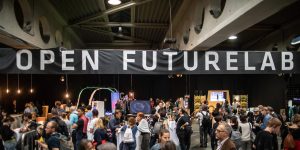
Open Futurelab Exhibition
The Open Futurelab Exhibition showcases the current research approaches and projects by the Ars Electronica Futurelab – Ars Electronica's Research and Development department.
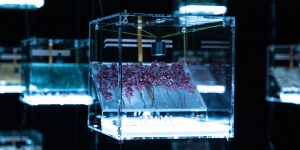
The Transparency of Randomness
Mathias Gartner (AT), Vera Tolazzi (AT)
"The Transparency of Randomness" is an interactive installation that provides insight into the world of randomness. Random numbers are continuously generated through a transparent dice system, to be used as the basis for real-time calculations and visualizations. Through its use of diverse materials, the process is influenced by the complexity of nature.
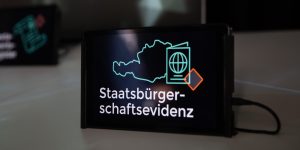
Digital Government in a Box
LIT Law Lab, Johannes Kepler University (AT)
From the “transparent citizen” and “social scoring” to AI-supported truth finding in the courtroom and machine-generated administrative notices: the digitization of administration and jurisdiction has many facets. It requires not only a consideration of what is technically possible, but also of what is legally permissible and what is desired in terms of legal policy. Against this background, the LIT Law Lab has two installations dedicated to the legal framework conditions (fundamental rights and data protection), problems and proposed solutions for a digitized enforcement.

Al truth machine
LIT Law Lab, Johannes Kepler Universität (AT)
From the “transparent citizen” and ”social scoring” to AI-supported truth finding in the courtroom and machine-generated administrative notices: the digitization of administration and jurisdiction has many facets. It requires not only a consideration of what is technically possible, but also what is legally permissible and what is desired in terms of legal policy. Against this background, the LIT Law Lab has two installations dedicated to the legal framework conditions (fundamental rights and data protection), problems and proposed solutions for a digitized enforcement.
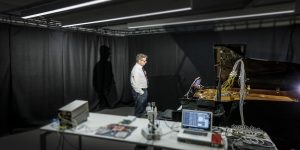
Biocomputer Rhythms
Interdisciplinary Centre for Computer Music Research (ICCMR), University of Plymouth (UK), Eduardo Reck Miranda (BR/UK)
Biocomputer Rhythms is a piece for prepared piano and percussion. It is a musical duet between a pianist and an intelligent interactive biocomputer. The biocomputer listens to the piano and produces musical responses during the performance. The responses are played on percussion instruments and on the piano by the pianist. The piano is prepared with electromagnetic actuators positioned inside the instrument to vibrate its strings. Electromagnetic actuators are also used to vibrate percussion instruments.
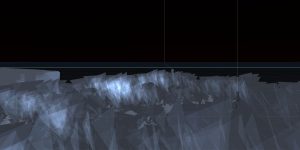
Random Rhetoric
MADE Group (GR)
“Random Rhetoric“ refers to computerized practices in politics, which are carried out through computers under the norm that political ideas operate as an outcome of mechanized processes and statistics, aiming at the absolute persuasion, the seduction of the audience, allured from the representation of a machine mimicking a human being.

JKU LIT @ Ars Electronica
The digital revolution, demographic changes, and the climate crisis–addressing the complex, conflicting fields of our time requires an epistemic landscape that is conducive to traversing academic parameters. Crossing the borders between disciplines should be considered a starting point for possibilities – even essential as a to interlink them – rather than an act of deconstruction.
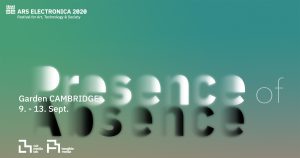
Presence of Absence
Tangible Media Group | MIT Media Lab (US)
The Cambridge Garden by Tangible Media Group for Ars Electronica Festival 2020, we will be featuring selected projects that materialize the Presence of Absence. Our garden introduces the latest in Tangible Telepresence research to engage people who collaborate across time and space with synchronized tangibles. We also feature a variety of dynamic computational materials we call Radical Atoms that foster a new form of human-material interactions.
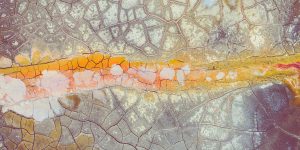
Speculating on the Future
Centre for Fine Arts (BOZAR) (BE)
BOZAR explores the role of scientific and technological research as an engine for creativity. The meeting of science, technology and the arts is the favoured basis for finding innovative responses to the social, ecological, and economic challenges that Europe will be facing in the near future. BOZAR joins the Ars Electronica Festival with its own interpretation of the Kepler’s garden, through the curation of 3 online events under umbrella name "Speculating on the future".


